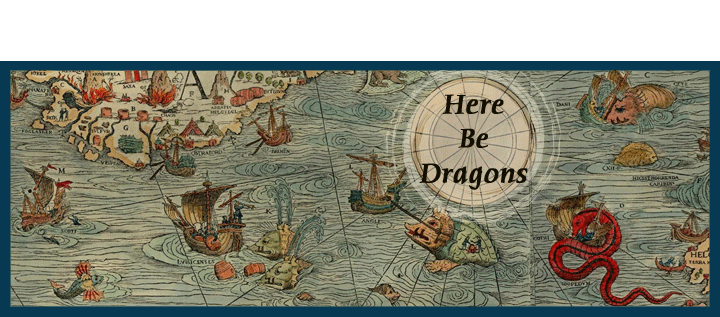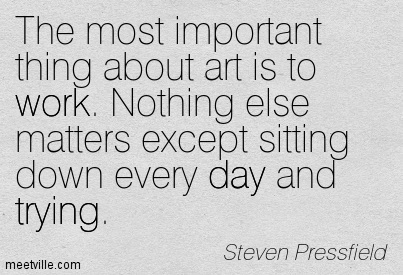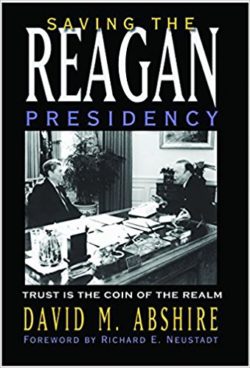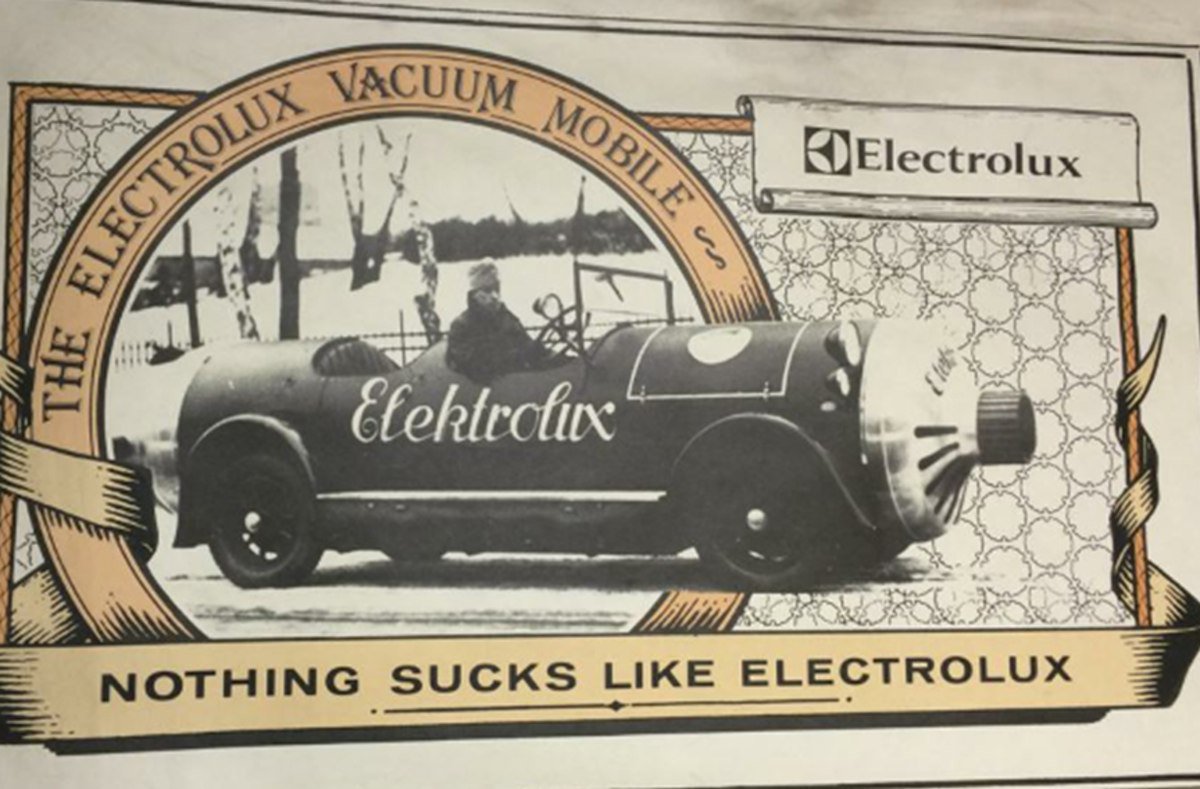
Comes a time in everyone’s life to move on. Whether it’s a relationship, job or life itself.
Sometimes it’s easy. Sometimes not. I’ve done it recently myself and found it to be a wonderful breath of fresh air and a new way of life.
I started a media services company called Kayser Media, which has a business model similar to the Navy’s Seal Team Six combat model. The best, most highly-trained and experienced people are assembled into teams to work with small-to-medium businesses for specific high-impact business development projects. Whether it’s marketing, PR, SEO, social media, content creation, publishing, TV, or radio – or the complete menu or services – all work together as equal partners to deliver results for the client. Or, it could even be running a complete PR or Marketing Department on an interim basis until the company fills critical leadership vacancies or decides what business model (in-house vs. external) it wants to use.
Employee-Employer Relationship
In creating this new business venture I was forced to think of not only the skills and capabilities of the people I wanted to work with – but the employee vs employer relationship. This triggered a serious re-thinking of my past assumptions.
The Workplace is Transforming Before Our Eyes
The workplace (and even the very definition of work) and job opportunities are radically transforming before our eyes. Dramatically. This also means the mindset of the employee and employer will have to change as well – especially mine.
And it has.
But this post isn’t about Kayser Media. It’s about people looking for meaning and purpose in work. The type of work I want to do. And, the people I want to work with in the future.
I’m throwing this out there more as a question than anything else.

What Type of Employee Would You Want?
What kind of employee would YOU want to help you in a startup? Or in growing a business? A struggling business? A dying business?
Certainly someone with drive and…
A Car

In “Outliers: The Story of Success,” by Malcolm Gladwell, a section of the book talks about three requirements that allow us to be happy and fulfilled with the work we do. They are…
Complexity
What does that mean- complexity? Pretty simple. The work engages your mind. It allows you to dream, create, re-create, and be responsible for decisions and directions. This type of endeavor is in direct contrast to work that treats you like a human machine. A cog with no purpose besides function. That type of work environment creates GoMo’s … people who go through the motion but are not engaged.
GOMO = Goes through the Motions

Autonomy
Autonomy is incredibly important. You need to be able to work and create without a Napoleonic Overlord looking over your shoulder nitpicking or micro-managing.
Great works are born in chaos, confusion and high energy … not in a micro-managed work environment.
Relationship
A relationship between effort and reward. Think about that. How many jobs have that now? The harder I work, the more I make?
How many people have seen “across the board cuts” in jobs or budgets, no matter how well the person or group was doing? Penalizing all, instead of praising and raising the performers?
Who does not respond to a direct relationship between effort and reward?
I like Gladwell’s CAR … although he didn’t call it that. I needed something to remember it by, hence the acronym. But his CAR is missing something. A…
MAP
I interviewed Guy Kawasaki a while back about his book “Enchantment: The Art of Changing Hearts, Minds, and Actions .” Guy has an excellent vision of creating fulfilling and meaningful work FOR employees. It’s called a MAP.
Mastery
Give employees the right skills, abilities and time to gain complete dominion over their job. Allow people to go off the farm and continually learn about new things, new ways to do their job. This works, with one small caveat. The person has to be motivated and an auto-didact. Have the energy and gumption to teach themselves on their own time – and enjoy it.
Autonomy
Pretty much the same as Malcolm Gladwell.
You need the freedom to learn and the freedom to fail.
The freedom to pick yourself up after a disaster and move forward, without some nitpicking Napoleonic bureaucrat bugging you.
If you tell people where to go, but not how to get there, you’ll be amazed at the results. – General George S. Patton
But some people truly don’t like autonomy. They need structure to tell them what to do, how to do it and when to do it. This is the mindset of the past. It worked for the industrial age. But not for this meltdown of an economic job-shedding mess we’re in.
The future belongs to energetic autodidacts. Ones that need only be pointed in the right direction – and then they ask you not to block their way.
People that will create new processes, new businesses, new breakthroughs and ultimately new industries – if you only stay out of their way.
Purpose
If you combine mastery of the job with autonomy, you’re doing pretty good. If you’re living that life, it’s a pretty good gig. But the missing ingredient, according to Guy, is purpose. Being a part of something bigger than yourself. Making a difference in the world. A dedicated, fire-breathing believer in something that matters.
This, I think, is the hardest part. Particularly in these times. What if you have;
A job that sucks?
A job with low pay, no advancement possibilities, or toxic work environment?
A job that is ruled by sycophantic drones that only have their position because of nepotism?
And you’re treated like a mindless automaton or smart, but ultimately meaningless serf?
Whatever you are, be a good one. – Abraham Lincoln
That’s tough. But you can do it. Simply focus on doing the best you can at what you do while planning your escape from the soul-sucking situation.
I Don’t Want Employees
You don’t need employees these days. Relegate that serfdom term, employee, to the dustbin of mediocrity.
You need people who want to drive the CAR with their MAP to work passionately.
Partners in Purpose
These are not employees.
These are partners in purpose.
What could be better?

This is the final in a series of articles from an interview with Dr. Ken Blanchard about his newest book, “Great Leaders Grow: Becoming a Leader for Life.
GROW is an acronym and a strategy for business and life.
“G” stands for “gaining knowledge.””
“R” for “reaching out to others.”
“O” for opening your world.”
“W” for “walk towards wisdom.
OPENING YOUR WORLD
Steve Kayser: The “O” in GROW, stands for “Opening your world.” Three simple words, but big implications. What does it mean?
Ken Blanchard: It’s looking for new opportunities to learn. Both on and off of work. For example, at work, have you ever thought about;
- Shadowing somebody from another department?
- Volunteering to run a social activity for the company?
- Creating opportunities for you to constantly learn, to look for mentors, to find people that can just expand your world?
CALL SECURITY!
Steve Kayser: I tried shadowing somebody at work once. Someone I hoped would be my mentor, the Treasurer of our company. He called security on me.
Ken Blanchard: Ha-ha, He thought you were after the money! Opening your world means you’re always looking for ways to grow in your own position by opening your world where you work.
Outside the office, you ought to travel quite a bit so you can learn from that. New perspectives, new people. Maybe even learn a new language. In our company, we have everybody have one goal per year. If they accomplish it, they will have something new on their resume that they didn’t have the year before.
STRETCH YOURSELF BEFORE YOU WRECK YOURSELF
You want to constantly stretch yourself and open your world to new learning opportunities.
Steve Kayser: I’ll throw a curveball at you … why? (After a pregnant pause, I suspect Dr. Blanchard has never been grilled by a sleuth like me.)
Ken Blanchard: Because, you can get so busy and focused on what you are doing that all of a sudden you wake up one day and find you’re behind. You grow stale. Your usefulness at work declines. Not a good place to head.
WALK TOWARD WISDOM
Steve Kayser: The “W” in GROW stands for “Walk Towards Wisdom.” My favorite part of the book actually. But, there is a difference between knowledge and wisdom.
Knowledge is knowing a tomato is fruit. Wisdom is knowing it shouldn’t be in my fruit salad.
When you say, “Walk Toward Wisdom,” what do you mean? Wisdom is often only attributed to gurus, saints and sages.
Ken Blanchard: Wisdom as we define it is;
WISDOM: The application of kind of accumulated knowledge and experience.
It’s one thing to know something but if it can’t impact what you do, it’s not really wisdom.
Contrary to what you might think, wisdom has little to do with age, because we’ve all known younger people who might be described as wise beyond their years. Many of us can probably also say we know a few old fools.
The truth is, wisdom is attained bit-by-bit throughout our lifetime. It’s always within reach, but it must be pursued. It’s, keeping your eyes open, learning new things and then see how they can be applied and used in your life and the life of others.
It’s a Walk Towards Wisdom.
Steve Kayser: It’s a “constant becoming?”
SELF-EVALUATION
Ken Blanchard: Yes. You could say that. In the book we talk about different elements of wisdom.
AND I SAID TO MYSELF, “SELF … WHAT’S WORKING?”
One is that old concept about self-evaluation, looking into the mirror and being truthful about yourself.
What’s working and what’s not working in your life and career?
Are you considering your strengths and how you can leverage them?
Are you reflecting on your weaknesses to try to fix them?
Self-evaluation is such an important thing.
FEEDBACK
Another one I have always loved is, “Feedback is the breakfast of champions.”
Do you have people around you who give you feedback and are honest with you?
Do you have truth tellers in your life?
A lot of times people live with truth tellers if you only listen to them.
Do your friends level with you?
Steve Kayser: Sometimes that’s hard to do, especially if they’re friends from work.
Ken Blanchard: But what’s the value of true friends? Well, they are honest with you. They will tell you the truth.
I grew up with a lot of guys that went to school at Cornell and nobody lets anybody act like a big deal. We were at a restaurant one time, eight couples, we’d known each other for fifty years and a waiter comes up,
“We understand the author of “The One Minute Manager” is in your group, could we get his autograph?”
And it was almost on cue, they all shouted,
“Why do you want his autograph? Hell, he never even went to class, you know. What was his average? About 70…”
And they just put everything in perspective.
Steve Kayser: A walk toward wisdom also means a dogged determination to ask questions that matter. Especially if you want to be a great leader in business … or life.
Ken Blanchard: Yes. A friend of ours, Shawn Harris, who built Cold Stone Creameries, once said there are three kinds of leaders.
THREE KINDS OF LEADERS – PERIOD
There is the “period,” which is,
“Here is my opinion. (period)”
Not good.
EXCLAMATION!
“Here is what I think! (exclamation point)”
The worst! But the great leaders are “question marks.”
QUESTION?
They ask great questions like,
“Here is my opinion about what I think we ought to do, but what do you think about it?”
If they say,
“Well, I don’t really know if I could add anything to that.”
“Well, if you did, what would you add?”
And they keep on asking questions, because then you’re going to learn because I think, as I said before, none of us is as smart as all of us.
Steve Kayser: I heard a couple of people in the hallway where I use to work talk about a person that wasn’t keeping up with his job or learning new skills . One of the younger ones said,
“He should be put out to pasture,”
Because he was too old to learn. And I said,
“That’s not true, anybody can learn anything at anytime.”
Somehow the conversation got back to him and he was deeply hurt. I followed up with him and sent him a quote by one of my favorite writers, Richard Bach. A writer much like you, full of wit and wonderful wisdom.
“Here’s a test to find whether your mission on earth is finished.
If you’re alive, it isn’t.”
Ken Blanchard: Yes, some people repeat the same year, year-after-year, and don’t grow. That’s why I think it’s so valuable for you to personally, all of us, to say,
- What can l learn this year that I can put on my resume that wasn’t there last year?
- How do I constantly grow and push my mental envelope?
I got a chance to write a book with Norman Vincent Peale, who wrote The Power of Positive Thinking. I met him in 1986 when he was 88 years old. He was so excited about life. And I said, “Why are you so excited?” He said,
“Everyday is an opportunity to learn something new, I just never know what I’m going to learn.”
That’s just such a powerful example for anyone. And it’s been such an inspiration to me.
###
OTHER ARTICLES FROM THIS SERIES

I had the opportunity to interview Robert Kiyosaki, author of the #1 bestselling personal finance book of all time, Rich Dad, Poor Dad, on the radio. His “Rich Dad” series of books has been translated into 52 languages and sold 28-million copies in 109 countries.
Robert was great. Straight-shooter. Salty (almost had to beep him once – but I was laughing too hard to do it) and hilariously funny. If you ever get a chance to see him speak – do it.
But that’s not what I wanted to talk about.
I wanted to see what shaped his attitude in life. Because he has one. Powerful, true, ingrained.
LITTLE-KNOWN FACT ABOUT ROBERT KIYOSAKI
STEVE: I was going to start off with, “What’s it like to sell 28-million copies of Rich Dad Poor Dad?”‘ but I won’t. Probably bore you to tears. I’m a Vet and know that you are as well. When I learned you served as a marine helicopter gunship pilot in Vietnam, winning an air award medal, it intrigued me.
How did that time, that job, that place shape not only your business and leadership style, but also prepare you for the battlefield of business and life?
ROBERT: Being a gunship pilot we had a life expectancy of about 30 days because we got shot down so quickly.
“The most important thing I learned is that there’s no second place. “
For most of my life, I was kind of a screw-off—average in school, average in sports. I remember the day at Camp Pendleton in California when they strapped the missiles and guns onto my helicopter; it kind of sunk in that there was no second place anymore. Then one day I was flying my first actual mission in Vietnam, and I realized the school days were over. There were rounds coming up at us and I thought, “These guys are trying to kill us.”
Then, my crew chief taps me on the helmet and said;
“Hey lieutenant, you know what sucks about this job? There’s no second place. Either he’s going home or we’re going home, but we’re both not going to go home today.
“You better make up your mind who goes home today.”
Thank God we came home, the other guy didn’t, unfortunately. Once you learn that, it kind of takes the complacency out of your butt.
I decided if I was going to do something, I wasn’t going to do it average anymore; I was going to do it as if my life depended on it. I think that gives me the competitive edge.
BS DOESN’T DECIDE
I was a C student all the way through school. I failed out of high school two times because I just didn’t care.
I still have a Bachelor’s of Science degree that stands for BS, but other than that, it had nothing to do with my education.
It depended on how well you wanted to live your life.
IT’S YOUR CHOICE
If you want to live like a schmuck, that’s your choice, but it’s not my choice.
STEVE: How did you translate those experiences into leadership? You said the Marines changed your whole perception of leadership.
ROBERT: I went to four years of military school also, and they don’t teach you much except how to lead.
The first thing they teach you is,
What’s the mission?
It’s the most important thing of any military officer.
The next two things are,
Can you take orders?
Can you give orders?
In other words, can you follow and will other people follow you?
That was impeccable discipline.
One of the reasons people aren’t successful is NOT because they didn’t go to good schools; they just lack cojones as my Mexican friends would say. They lack discipline.
Discipline simply means doing what you need to do in spite of the fact you don’t want to do it.
That’s all it takes for success; you have to be disciplined.
###

THE WORK BOOK
International bestselling author, screenwriter and renowned military historian Steven Pressfield has a book called Do the Work. It’s about how to create and finish anything. A business. A book. A song. A philanthropic venture.
Whatever point you are at on your life’s journey – take the time to read Do the Work. It’s not work. It’s a joy. It’s not long. Takes about an hour to read – if you’re slow like me. It’s not dull, it’s brilliance, wrapped around hard-earned knowledge, deep inside timeless wisdom.
I met Steven Pressfield in 2007 when I interviewed him for an article called “How to Defeat Your Inner Deadbeat.” Since then I’ve had the pleasure of doing a couple other articles with him; “Non Vi Sed Arte – Not by Strength, by Guile,” and “The Power of Resistance.” The breadth, depth, and clarity of Steven’s ideas and writing are unparalleled in today’s world. They don’t teach this stuff in school. I don’t think they can. Some things are just ineffable.
BULL-SHIITAKE
To that, Steven would say, “Bull-Shiitake,” and laugh when he said it. Then he’d say, “You can do it too – just DO THE WORK.” He’s one of the true renaissance writing geniuses of our times. Why do I say that?
I don’t.
HIS WORK DOES
Steven Pressfield has written or co-written 34 screenplays, and is the author of international bestsellers “The Legend of Bagger Vance” (also a movie),; “Gates of Fire, An Epic Novel of the Battle of Thermopylae,”; “Tide of War,” ; “The Afghan Campaign,”;“Virtues of War,”; “The War of Art: Break Through the Blocks and Win Your Creative Battles,” “Killing Rommel,”; “THE PROFESSION,”; “Do the Work”; The Warrior Ethos,”; and his latest book, “The Lion’s Gate,” which film rights were recently aquired by Basil Iwanyk, who backed ‘The Expendables.’
THE SEARCH FOR MEANING, ART & WORK
I first became aware of Steven – not from any of his famous books or movies – but because a writer friend of mine gave me his book “War of Art.” Anyone that has ever met me knows, “art” is not the first word that comes to mind when describing my reading fare. Not the first word, but maybe right after the last word. However, my friend was dogging me out for always spouting off about what a great book should be – short, clear, emotionally powerful, life-changing – and he said “War of Art” was right up there with my all-time favorite, Viktor Frankl’s “Search for Meaning.”
I didn’t believe it. I only read the “War of Art” so I could refute, belittle, and humiliate my well-meaning, but almost-always-wrong, friend about the absurd deficiencies of the book in comparison to “The Search for Meaning.”
I read “The War of Art.“ I was wrong. Completely. Utterly. Embarrassingly. It was just as good in a different kind of way.
The Search for Meaning was about finding a way to survive in any environment – even a death camp – and how to find meaning in it.
The War of Art is about how to find a way to create in any environment – even a boring or bad one – and how to experience meaning while doing it.
Do the Work is a companion to The War of Art. A workbook. A shut up and do-it guide. It treads some of the same turf as the War of Art. It fights the intractable, implacable, insidious foe of mankind – Resistance. But it’s also an indispensable guide to winning at business or life.
NOT TAUGHT AT ANY SCHOOLS

The lessons in Do the Work are not taught at any business school. Couldn’t be. This is wisdom of the elders secret knowledge type of stuff passed on only by someone who has experienced it. Someone who has seen further, accomplished more, experienced more because they DID THE WORK.
THREE-CLASS ACTS
Do the Work is a 1-2-3 type process of getting a project accomplished, a book completed, a business started. Music, science, business and writing all seem to follow a similar three act structure.
Musicians (which I don’t claim to be but hack around at it) have the Sonata form which consists of a statement, development and recapitulation.
Scientists use the hypothesis, inference and verification method.
Philosophers use hypothesis, anti-thesis, synthesis (Hegel’s dialectic).
Writers focus on three acts; the beginning, middle, and end.
Do the Work shows you DaVinci, the Vietnam Memorial and Facebook – in three acts.
WHO TEACHES THESE GEMS?
What school or teacher would tell you …
- To start before you’re ready?
- To stay stupid?
- To be stubborn?
- To stay primitive?
- To go on a research diet?
- To swing for the seats?
- That the problem is not you … the problem is the problem?
These gems are like master ideas. Once you get them, you never forget. But these ideas and lessons are necessary to get your work done. Any work. They’re also necessary because the creation of any great thing is born in chaos. Not ease.
Babies are born in blood and chaos; stars and galaxies come into being amid the release of massive primordial cataclysms.
The most highly cultured mother gives birth sweating and dislocated and cursing like a sailor.
The hospital room may be spotless and sterile, but birth itself will always take place amid chaos, pain and blood. – Steven Pressfield
AND…
When I was writing “The Greatest Words You’ve Never Heard: True Stories of Triumph,” and mentioned it to Steven he had the perfect comment to me … and it led to me actually finishing the book (you’ll have to read the intro to see what it was.) I thanked him in the intro of the book for his inspiration and help through the years. But, there’s one thing that he said, and I heard but didn’t hear. Didn’t understand it until I finished.
We must do our work for its own sake, not for fortune or attention or applause.
That’s hard. Really hard. But when you do that you will become the consumate pro. You will concentrate on making meaning … you won’t have to search for it.
So … how do you create and finish anything?
Work the DO
Do the WORK.
###

In Scandal or Crisis, Character is the Still the Coin of the Realm
These are tough times. Unstable times. Uncertain times that will test the vision, spirit, and mettle of everyone – in life and in business.
These are times when things could go radically and drastically wrong, or … a person or persons will step up, and by force of one character trait – mold the future direction of our world in a positive way. It’s a test really.
Do we have what it takes to pass?
Do you?
Sometimes you’re confronted with a scandal or crisis, not of your own making and that becomes your true test of character … especially when everyone in the world is looking.
“Character is like a tree and reputation like its shadow. The shadow is what we think of it; the tree is the real thing.”
– Abraham Lincoln
FLUNKING THE TEST
When the test of character is flunked …
- families and friendships can be ruined,
- businesses destroyed, and
- governments brought down.
The story and interview that follows are not about avoiding a scandal or crisis, but how one American President through the strength of character dealt with a situation that threatened his presidency, his reputation, his place in history and America’s credibility.
AN AFFAIR SHAKES THE PRESIDENCY

In the mid-1980’s, President Ronald Reagan’s presidency was threatened by a looming scandal – The Iran-Contra affair. His reputation and the ability to lead the United States forward in hopes of ending the Cold War were in imminent danger.
At that critical moment, President Reagan decided to call the Ambassador to NATO, Dr. David M. Abshire, back to serve in the cabinet as Special Counselor.
TRANSPARENCY EXPEDITIOUS (not a disease)
Dr. Abshire’s mission?
Ensure a full investigation of the sale of arms to Iran in exchange for freeing American hostages and the subsequent funneling of those funds to Nicaraguan rebels. And (here’s the tough part) do it expeditiously and transparently, to restore the confidence of the nation in the shaken Reagan presidency.
That phrase sound familiar? To restore the confidence of a nation?
WHY DR. ABSHIRE?
Character. Competence. Commitment. Objectivity. Experience.
“The best executive is the one who has sense enough to pick good men to do what he wants done, and self restraint to keep from meddling with them while they do it.” – Theodore Roosevelt
Dr. Abshire co-founded the Center for Strategic and International Studies in Washington, D.C. His extensive experience, including service as Assistant Secretary of State and later as NATO Ambassador, gives him a perspective both unique and insightful. He was the president of the Center for the Study of the Presidency and also president of the Richard Lounsbery Foundation.
Dr. Abshire was Ambassador to NATO where in reaction to the threat posed by Soviet SS-20 missiles. Dr. Abshire also was the United States point man in Europe for deployment of Pershing and Cruise missiles. It was this NATO success that convinced the Soviets to sign the historic INP Treaty and withdraw their missiles. Ambassador Abshire initiated a new conventional defense improvement effort so that NATO would not have to rely heavily on nuclear weapons. For this, he was given the highest Defense Department civilian award – its Distinguished Public Service Medal.
Dr. Abshire has received the John Carroll Award for outstanding service by a Georgetown University alumnus; the Distinguished Graduate Award of the United States Military Academy; the 1994 U.S. Military Academy’s Castle Award; the Gold Medal of the Sons of the American Revolution; the Baylor Distinguished Alumni Award; the Order of the Crown (Belgium); Commander de l’Ordre de Leopold (Belgium); the Medal of the President of the Italian Republic, Senate, Parliament and Government; Grand Official of the Order of the Republic of Italy; Order of Diplomatic Service Merit Heung-In Medal (Korea); the insignia of the Commander, First Class, Order of the Lion of Finland; in 1999, the Order of the Liberator (Argentina); and in May 2001, the Order of the Sacred Treasure Gold and Silver Star (Japan). In addition to the Department of Defense Medal for Distinguished Public Service, he was awarded the Presidential Citizens Medal.
Dr. Abshire received his bachelor’s degree from the U.S. Military Academy at West Point.
In the Korean War, he served as a platoon leader, company commander, and a division assistant intelligence officer. He received The Bronze Star with Oak Leaf Cluster with V for Valor, Commendation Ribbon with medal pendant, and Combat Infantry Badge. He was awarded his Ph.D. in History from Georgetown University with honors (Gold Key Society). He received a Doctor of Humane Letters from Virginia Theological Seminary in 1992 and a Doctor of Civil Law, honoris causa, from the University of the South in 1994.
SAVING THE REAGAN PRESIDENCY
In 1987, Dr. Abshire served as a Special Counselor to President Reagan with Cabinet rank, to coordinate the Iran-Contra investigation, and had authority to meet with the President alone.
THE INTERVIEW
Steve: What was your most memorable moment in the crisis with President Reagan that best showcased his strength of character and determination?
Dr. Abshire: I would say that my most memorable moment with President Reagan was the initial phone conversation that I had with him in December 1986. At the time, I was at Truman Hall, my NATO Ambassadorial residence, and I had read all about the trouble the President was in regarding the sale of arms to Iran for hostages. The President requested I come back to Washington to be his special counselor – with cabinet rank – during this crisis and that I would report directly to him.
There are two very important things about this phone call that show Reagan’s strengths and character as a leader:
The fact that he called me personally and did not leave it to one of his staffers shows just how serious of a situation he was in, and just how important it was to him personally to climb out of this dilemma.
Other leaders in his position – who did not care about setting things right – would have left this job to somebody else. The fact that he didn’t says volumes about his determination to get ahead of this crisis.
The fact that he even requested a Special Counselor to help facilitate the crisis from the White House – with the job of getting everything out with no executive privilege – shows that he was concerned with setting things right.
President Reagan was concerned with his reputation as a leader and didn’t want to offer an opportunity for anybody to impugn his integrity and character saying that there was a cover-up.
Steve: What was the most important thing you learned from this experience?
Dr. Abshire: The most important thing I learned is that when you get in a hole, do not dig it deeper; come clean, get outside help, and climb out of it.
If you tell the truth, you don’t have to remember anything.
– Mark Twain
Steve: Examples?
Dr. Abshire: There are many instances of presidents – take Richard Nixon and Bill Clinton for example – that dug their hole deeper until they couldn’t get out.
Nixon did not know about the initial Watergate break-in, but he covered up the investigation.
Clinton, instead of admitting to his infidelity at the onset – which is not a crime, made the mistake of lying to a grand jury to hide it from his wife and family and came very close to impeachment.
Reagan, on the other hand, took the necessary steps to save his presidency, which leads me to my second point: the creation of the Tower Board.
Reagan empowered a bipartisan committee to investigate his involvement in the Iran-Contra scandal. This step was essential to show the public and Congress that he was serious about investigating any wrongdoing that may have happened on his watch. The President could not get out of his hole or create the Tower Board without “reaching out” – both to myself and to other Members of Congress.
By reaching out and involving Congress in the progress of the investigation, the President gave them a stake in its outcome and also a feeling that they were intimately involved in the process as a whole.
Steve: What surprised you most about this experience with President Reagan?
Dr. Abshire: I was most surprised by the practical nature of the President. For all talk of a Reagan and Conservative Revolution in the early 1980s with its anti-Communist sentiments, I was pleasantly surprised by Reagan’s philosophy – he was not an ideologue. I was impressed with his ability to shift America’s strategy to face the shifting currents of the times and not to strictly adhere to any ideological plank.
Steve: Example?
Dr. Abshire: A fine example of this characteristic was when – after he had referred to the Soviet Union as the “Evil Empire” – he came to an agreement with Mikhail Gorbachev at Reykjavik, Iceland to reduce nuclear weapon stockpiles and to limit production of entirely new types of nuclear weapons.
“Sow a thought; reap an action.
Sow an act; reap a habit.
Sow a habit; reap a character.
Sow a character; reap a destiny.”
– Charles Reader
Steve: So, in the end – for pauper, prince, president or pope …
Dr. Abshire: In scandal or crisis, character is always the coin of the realm.

###

Marketing. Advertising.
Is there any more expensive way to throw away money with such arrogant disregard for common sense? Or, to do it with such condescending, confounding, disparate, and creative personalities? Is there any more effective way to get people to scratch their heads with befuddled looks and say,
“What marketing bonehead thought up that commercial?”
But, Steve, aren’t you a marketing bonehead?
No … well, maybe. Sorta. Okay, I confess. Sometimes I’m in marketing too. Anybody is that creates and runs a business. And yes, sometimes, I lump myself in with the knuckleheads referenced above. But, recently I watched several commercials that absolutely floored me. Totally nonsensical, beyond even my warped sense of artistic marketing deficiencies.
Has High IQ

Now I consider myself quite the intellectual. My IQ is (let’s play hi-low, I have to show some discretion here so as not to embarrass fellow readers) between 50 and 75 (lower during work hours). But when watching the aforementioned commercials:
- I didn’t get the message.
- I wasn’t even sure it was in a language known to man.
- I couldn’t say what product was being sold, if any.
- I couldn’t decipher why, if I figured out number two, I would want to buy it anyway.
- No benefit, no Unique Selling Proposition (USP).
And finally… I couldn’t figure out how anyone besides a lamebrained, half-witted, discombobulated imbecile with no fiscal responsibility to his employees, shareholders, investors or owners, would okay the budget to produce the commercial, let alone air it. (Though secretly I yearned to meet him. I have a cool marketing campaign designed to roll out a hypothetical, superluminal donkey-shaped quantum particle-powered car for the NASCAR circuit.)
Some World-Class Marketing Screw-Ups (or … how to end your marketing career quickly without really trying)
Now, every business discipline has its fair share of screw-ups. But, when marketing folks screw up, it’s typically on a grand scale. Spectacular … and funny (unless you’re the one paying for it). For example, a beer company wondered why sales were close to non-existent in a European country they were trying to penetrate. They had a slogan that was remarkably similar to, if not identical, to “Turn It Loose.” Well, when translated into the native language, it came out as,
“Suffer from Diarrhea.”

You think that might have been the problem? How about this one (one of my favorites)? The Scandinavian manufacturer, Electrolux, rolled out an American campaign that, when translated, caused a few titters.

“Nothing Sucks Like an Electrolux.”
Nice rhyme and it grabs you, doesn’t it? I mean for a tagline … it’s a killer. And who wouldn’t appreciate the bad taste (or more aptly … smell) of this campaign from a multinational hair-product company. The product was called “Mist Stick.” Has a certain elegance, certain chic, certain ambiance doesn’t it? Sales in a foreign country were slightly hindered by the translation of “Mist Stick” into:
“Manure Stick.”

Surprisingly, not many people plopped down their hard-earned money for it. (However, the marketing director was rumored to have been repeatedly assaulted with a manure stick as he was run out of town.) For you romantics out there, can you imagine the wooing possibilities?
Obviously, these marketing mistakes centered on cross-cultural, vernacular, and incorrect translations. So the obvious fix would to be more visual … don’t you think? Yes! Pictures! That’s it. Show. Don’t tell. Less is more! An American baby food company tried that in Africa. They used the same packaging as used in the U.S., which includes a picture of a cuddly, cute baby.

Oops. Once again, the first indicator of a problem was … no sales.
African companies put pictures of what’s inside the jars (contents) on the outside of the jars. Apparently, in Africa, there was no taste (that was in bad taste wasn’t it?) or market for babies in a jar. Even if they were cute as can be. So, when you think things are going bad, your sales and marketing campaigns are floundering, and you feel stupid, perk up!
You could be marketing Manure Stick.





















Recent Comments
Lessons Learned from Hollywood STORY Guru Robert McKee